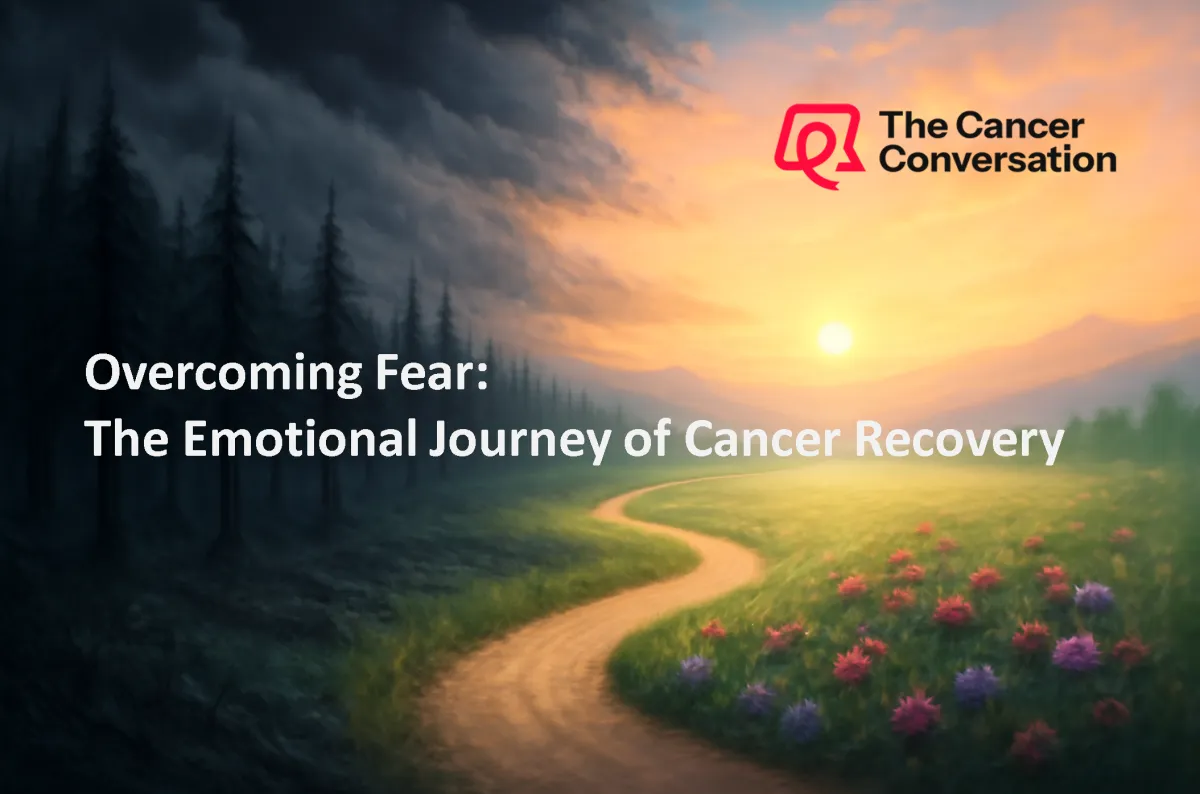
Overcoming Fear: The Emotional Journey of Cancer Recovery
Cancer recovery is not just a physical process; it's an emotional journey that can test the limits of even the strongest individuals and their loved ones. The fear that accompanies a diagnosis can often feel overwhelming, but building resilience is possible with the right support and guidance. By focusing on holistic healing and mind-body wellness, those affected can find empowerment and hope along the path to recovery. In this blog post, we will explore strategies for overcoming fear and nurturing emotional strength, offering insights that can help transform this challenging time into a period of growth and healing. Let's take this step together and create a supportive community where fear is met with courage and hope. 🌟
Understanding Fear in Cancer Recovery
Fear is a natural response to a cancer diagnosis. It can manifest in various ways, affecting both the individual diagnosed and their loved ones. Understanding this fear is crucial for navigating the emotional journey of cancer recovery.
The Impact of a Diagnosis
The moment a doctor delivers a cancer diagnosis, it can feel as though the ground has shifted beneath you. This can trigger intense fear and anxiety, impacting every aspect of life. Research shows that understanding the emotional impact of diagnosis is essential for processing these feelings. According to the Mayo Clinic Health System, the fear of the unknown can be as daunting as the disease itself.
Patients may experience:
Shock and disbelief
Anxiety about treatment and outcomes
Concerns about family and future
Loved ones often face:
Fear for the patient's health
Anxiety about supporting the patient
Emotional exhaustion
Both parties can benefit from open communication and access to reliable information.
Navigating Emotional Turbulence
Cancer recovery brings a whirlwind of emotions, from relief to fear and everything in between. Navigating these emotional waters requires patience and self-awareness. The Florida Cancer Specialists emphasize the importance of acknowledging and validating these feelings.
Steps to navigate emotional turbulence:
Identify emotions: Recognize and name the emotions you're experiencing.
Express feelings: Share your thoughts with trusted friends or therapists.
Practice mindfulness: Engage in meditation or breathing exercises to stay grounded.
Creating a journal to track emotional changes can also provide valuable insights into triggers and coping mechanisms.
Building a Support Network
Support networks play a pivotal role in managing fear during cancer recovery. These networks provide emotional, practical, and sometimes financial assistance. According to Livestrong, having a support system can significantly improve emotional well-being.
Benefits of a strong support network include:
Emotional support: Provides reassurance and reduces feelings of isolation.
Practical help: Assists with daily tasks and treatment logistics.
Shared experiences: Offers insights and coping strategies from others on the same journey.
Consider joining support groups, either in-person or online, to connect with others facing similar challenges.
Strategies for Overcoming Fear
Overcoming fear in cancer recovery involves holistic approaches that address the mind, body, and spirit. These strategies provide a comprehensive framework for healing and growth.
Embracing Holistic Healing
Holistic healing focuses on treating the whole person, not just the disease. This approach integrates traditional medicine with complementary therapies to enhance overall well-being. Mayo Clinic supports the integration of holistic practices for cancer recovery.
Key components of holistic healing:
Nutrition: A balanced diet supports physical health and recovery.
Exercise: Regular activity boosts mood and reduces fatigue.
Alternative therapies: Practices like acupuncture and massage can alleviate treatment side effects.
Explore various holistic options and consult healthcare providers to find what complements your treatment plan.
Mind-Body Wellness Practices
Mind-body wellness practices aim to harmonize mental and physical health. These techniques can reduce stress, enhance mood, and foster resilience. According to Livestrong, mind-body practices are effective in managing cancer-related anxiety.
Common practices include:
Yoga: Combines physical postures with breathing exercises for relaxation.
Meditation: Encourages mindfulness and stress reduction.
Visualization: Uses positive imagery to promote healing.
Incorporating these practices into daily routines can provide a sense of control and peace.
Developing Resilience and Hope
Building resilience and hope is a vital part of overcoming fear. Resilience allows individuals to adapt to challenges and maintain a positive outlook. Florida Cancer Specialists suggest that focusing on strengths and accomplishments can foster resilience.
Steps to develop resilience:
Set realistic goals: Break down recovery into manageable steps.
Celebrate achievements: Acknowledge small victories along the way.
Stay connected: Maintain relationships that uplift and support.
Remember, resilience is not about avoiding difficulties but facing them with courage and determination.
Empowering Your Emotional Strength
Empowering emotional strength involves finding purpose, creating supportive communities, and accessing resources for ongoing healing.
Finding Purpose in the Struggle
Finding purpose can transform the experience of cancer recovery. It provides motivation and a sense of direction during difficult times. Mayo Clinic Health System highlights the importance of identifying personal values and goals.
Ways to find purpose:
Reflect on values: Consider what matters most in your life.
Engage in meaningful activities: Volunteer or pursue hobbies that bring joy.
Share your story: Inspire others by sharing your journey and insights.
Purpose-driven actions can instill hope and empower recovery.
Creating a Community of Support
Building a community of support enhances emotional strength and resilience. This community can be a source of encouragement and understanding. Livestrong emphasizes the value of connecting with others facing similar challenges.
Suggestions for building community:
Join support groups: Participate in local or online groups for shared experiences.
Cultivate friendships: Maintain and nurture existing relationships.
Seek professional support: Engage counselors or therapists for guidance.
A strong community can provide a cushion of support during challenging times.
Resources for Continued Healing
Accessing resources is essential for sustaining emotional strength during and after cancer recovery. These resources offer support, information, and guidance. Mayo Clinic provides a wealth of information on integrating resources into recovery.
Important resources include:
Educational materials: Books, websites, and articles on cancer recovery.
Support organizations: Groups that offer emotional and practical assistance.
Therapeutic services: Counselling, support groups, and wellness programs.
Utilizing these resources can enhance recovery and provide ongoing support. 🌟







